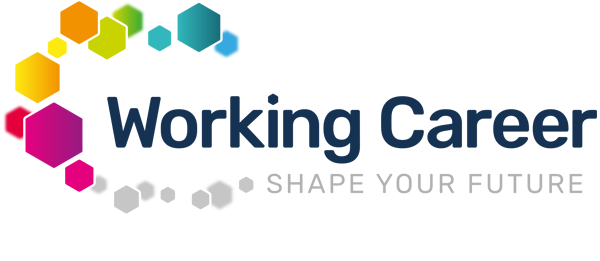Do you get interview nerves?
12 ways to overcome your nerves to help you shine at interviews
Many people don’t mind interviews or even enjoy them. But for some, they are terrified at the mere thought of them.
Undoubtedly, COVID is having an impact on our jobs and careers. In many sectors, there are fewer opportunities to apply for. This can give added pressure to perform at the interview.
Here are 12 ways to calm your nerves at interviews:
1. Understand what’s going on
You might be frightened of interviews because you anticipate something going wrong. Often, people are terrified of “freezing” in interviews—not remembering things or being able to answer a question. You might know the answer, but sometimes, we have an “amygdala hijack,” and our minds go blank.
The amygdala is a collection of cells near the base of the brain. This is where emotions are given meaning, remembered, and attached to associations and responses. When humans feel threatened or frightened, we can go into fight, flight or freeze mode. This automatic response to danger allows you to respond without thinking. It is a response leftover from the days of evolution when we needed it to survive.
Meeting new people, being in a different place, and being asked difficult questions can trigger this feeling of being threatened. This may trigger the automatic response from the amygdala to release cortisol and adrenaline. These “stress hormones” flood your frontal lobes (where planning, thinking, reasoning, and decision-making happen), meaning you freeze, can’t think straight, or your mind goes blank.
It's a response that might have been useful to avoid predators in the wild, but it’s not that useful in an interview situation! The following tips can help reduce this response.
2. Find out more about the interview
The brain does not like the unknown. Being in a different situation or meeting new people can add pressure or stress to the problem. Therefore, the more you do beforehand to find out who you will be meeting, the type of interview, the structure of the interview, etc., the better. If it is a remote interview, ensure you understand the systems, such as Zoom or Microsoft Teams. If it is an interview at the company location or elsewhere, ensure you have been there so you don’t have the added pressure of being late or losing your way.
3. Think about what triggers you
Think about what causes you anxiety about the interview. If you don’t remember the competency examples that you have prepared, make some brief notes to take with you. Or, in the case of remote interviews, put some notes behind the camera so you don’t lose eye contact. If you are worried about a squeaky voice or coughing, take some water with you or have some at the side of the computer. There are some things that you have control over in interviews.
You might want to challenge your thoughts if you are thinking that everything will go wrong and ask yourself the following questions:
Is this likely to happen?
Is this a rational thought?
Has this ever happened to me before?
What’s the worst that can happen? Can I handle that?
4. Focus on your breathing
If you are anxious, you take quick, shallow breaths, causing a positive feedback loop that reinforces your fight-or-flight response. That’s why taking long, deep, calming breaths disrupts that loop and helps you calm down. You can try slowing down your exhalation so it’s twice as long as your inhalation. Practice breathing techniques so you can use them before the interview and even during the interview to calm yourself down.
5. Go for a walk beforehand
Fresh air is good for clearing the head and getting focused. Walking can release tension, and we can be less in our heads and more in our bodies. Some find yoga and meditation valuable for induced calm.
6. Remember it’s just a conversation
Some people hate interviews because you have to “sell yourself”. Reframe this thought to interviews as a chance to tell the interviewer how you match up to what they are looking for. You are not expected to big up or be someone you are not. Remember, interviews are two-way; you also want to know if you want to work for the company.
7. Make an interview cheat sheet
Take the pressure off by having a cheat sheet completed before the interview.
Download my free Virtual Interview Checklist, or you can make your own.
The following items are helpful to think about:
A list of names of who is interviewing you and what their role is
Information about the company or organisation from their website, company records and reports, recent articles in newspapers or from anyone you know who works there already
Find out as much as you can about the job from the advertisement job description and from speaking to anyone you know who works in the organisation
What the right thing is to wear
Take or have the right stuff handy (your passport/qualifications etc.)
Know where you are going or how the technology works
A list of the competencies and your examples
8. Have a format to answer the questions
You can reduce tension by having a format for answering questions so you don’t forget anything. This is especially true for behavioural questions, which normally start with “Tell me about a time” or “Give me an example when.” One format is using the STAR approach.
The STAR approach allows you to cover some of the probe questions most likely to be asked.
S – the Situation that demonstrates the competency. Set the scene and keep it concise and informative by sticking to what is useful for the story.
T – the Task – what had to be done?
A – your Action – what you did, how you did it and why. This is your opportunity to sell your key skills. Talk about you, not the rest of the team. Go into some detail, but don’t get bogged down in too much technical information.
R – the Results – what the outcome was, and what you learned from the experience.
Sometimes, people add a second R: Reflection. Say what you have learned from the experience and what you would do differently now.
Having a format keeps you on track and can put you back on track if you wander off.
9. Have a stock of positive experiences to think about
To combat that flood of cortisol and adrenaline that causes the amygdala to hijack, have a stock of examples in your head when you feel things have gone well. This might be a previous interview where you excelled. Or you might want to think of things you love. Having a stock of powerful images in your head that you can recall can change your chemistry by giving yourself a dose of dopamine and serotonin.
10. Remember your body language
How we act and what we do can affect how we think and feel. If you feel nervous or anxious, try smiling! Your body tells you, you are happy, which can change your mood. Our posture also can affect how we feel. Putting our shoulders back and being as big as possible tells us we are confident and ready to take on anything.
11. Get a good night’s sleep
So much research claims a good night's sleep is essential for concentration and performance, so get some good rest beforehand.
12. Practice, Practice, Practice
Get family and friends to ask you questions. Practising in your head from speaking out loud is a different thing. You will get a good idea about the questions you must prepare further when practising. The more interviews you do, the less it will seem strange, and your fear will be reduced. Interviews will soon seem easy and not as frightening as ghosts and Halloween!
Make interviews a little less scary by taking the stress out by having an interview checklist. Download yours now:
I am Diana Dawson, Founder of Working Career. As a Professional Career Coach, Career Psychologist, Career Counsellor, Career Consultant, Executive Coach and Wellbeing at Work Coach, I work with organisations and individuals to help manage their careers.
I am an Accredited Master Coach with the Association for Coaching, a Coaching Psychologist and Cognitive Behavioural Hypnotherapist with nearly 20 years of experience in the field.
I work with professional people from different sectors and backgrounds to cope and flourish at work. I also run Career Workshops and Wellbeing Workshops for organisations.
I can provide one-to-one career coaching in Edinburgh or zoom sessions worldwide. I can provide Career Workshops at your organisation or remotely. Find out more about me here


